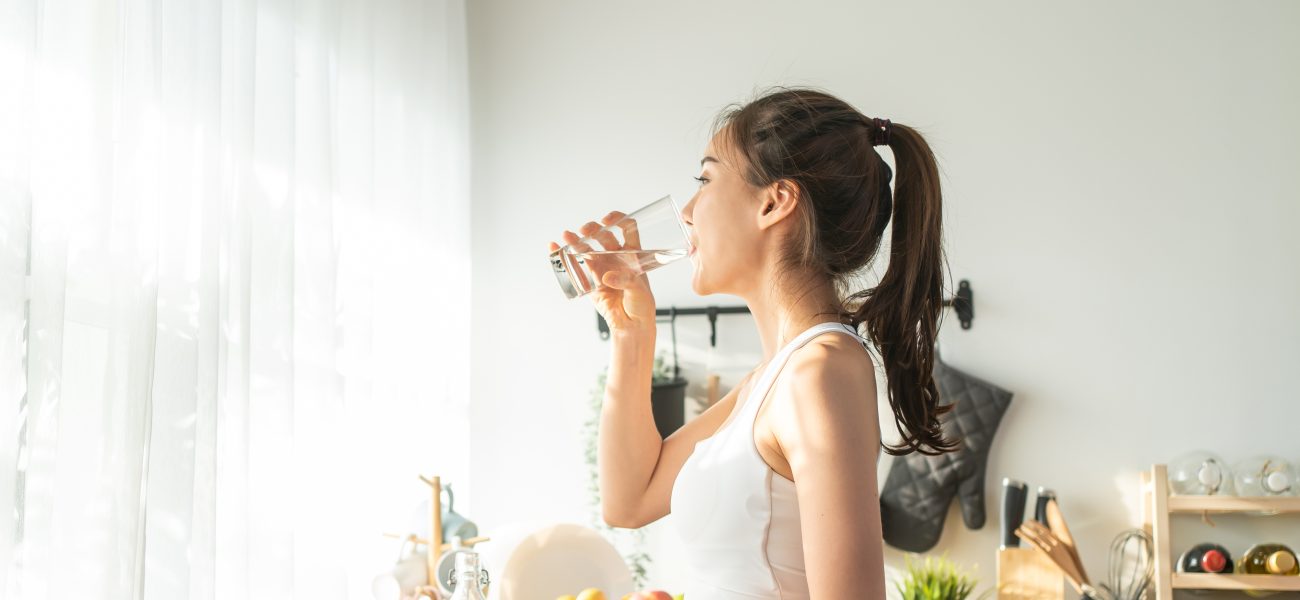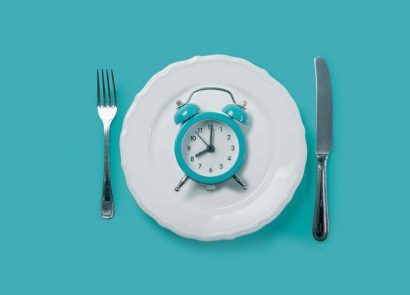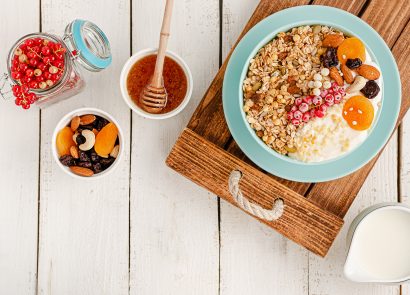As the temperature begin to rise, keeping on top of our water intake is essential to our health. We’ve asked the experts for their help…
It’s rare that we forget to fuel ourselves properly with three meals a day, but staying hydrated can often go to the back of our minds, especially when we become preoccupied with typical spring and summertime activities (did someone say Pimms?). But, not only does being properly hydrated quench our thirst, it also flushes out toxins in your body, while supporting your metabolism which, in turn, helps us to stay satiated in between meals. We also lose more fluid when the weather is hotter, so we’ve called on the industry’s finest to help you stay hydrated beyond your water bottle. Drink up!
1. Drink plenty of water
It may seem obvious, but recent research by Robinsons has revealed that 62 percent of Brits admit to not drinking the recommended daily allowance by the NHS – it’s 1.2l, which equates to about six to eight glasses, FYI. “Keeping hydrated, especially during the summer months, is important for so many reasons,” says hydration expert, Dr Emma Derbyshire (nutritional-insight.co.uk). “Dehydration may contribute to more long-term effects that go beyond headaches, such as constipation, reduced kidney function and mental confusion, so it’s vital to ensure fluid intake is in keeping with the recommended guidelines.” Most people tend to wait until they’re thirsty before filling their glass, but you could already be dehydrated by this point. “Start the day with a large glass of water to top up your body’s water levels before the day begins,” suggests Dr Emma.
2. Have a strategy
How many times have you left the house without bringing something to drink with you and had to nip into a shop for a bottle of water? We’ve all done it, but as well as SUP (single-use plastics) being harmful to the environment, going without drinking fluids for long periods can lead to headaches and lower concentration levels. This is why it’s better to have a plan, says Mark Gilbert, nutritionist for The 1:1 Diet by Cambridge Weight Plan (one2onediet.com). “Always ensure you’ve got a bottle handy when you’re heading out, so you can top up your body’s water levels before dehydration strikes.” Egle Dackauskaite, a leading nutritionist at John Bell & Croydon (johnbellcroyden.co.uk), agrees that this is a good tactic. “You can also buy reusable bottles that have guides or dots to help you keep track and will prompt you to fill it up again.”
3. Infuse your water with fruit
Water should be your first port of call to quench your thirst, but it doesn’t exactly contain the colours of the rainbow, so make your regular glass more exciting with fresh fruit. “If you don’t like the taste of plain water, add slices of lemon, lime, orange, ginger, strawberries, mango, kiwi or cucumber,” advises Egle. Another allnatural way you could pep up your water is to experiment with ice. “Make ice cubes out of low-sugar juice and add them to your water. Frozen herbal teas, such as mint, lemon balm and raspberry leaf, can be also very refreshing during hot summer days.” Not to mention good for gut health!
4. Keep an eye on loved ones
Babies, children and the elderly are more susceptible to dehydration, as they may not drink enough or be able to spot the signs of dehydration. “Toddlers and children often don’t recognise the feeling of thirst, so it’s important to keep reminding them to drink,” explains registered nutritionist, Johanna Hignett. “Regularly offering a beaker or glass of water is a great way to keep them hydrated, particularly because there’s no sugar that could harm their teeth.” As you get older, your sense of thirst diminishes and, while you might not be able to physically hand a glass of water to your elderly parents at the moment, you can pick up the phone to give them daily reminders. Plus, it’s not just water that helps keep older adults hydrated, as Mark explains. “They need to keep their hydration levels up to maintain health and, despite what you may have heard, tea and coffee both count!”
5. Eat hydrating food
If you’re finding it a struggle to reach the recommended guidelines, you can up your intake by eating foods that contain a lot of water. These include tomatoes, celery, lettuce, watermelon and cauliflower. “Most fruit and veg is more than 70 percent water and, even when it’s cooked, most meat and fish are over half water, too,” says Mark. “Eggs are 60-70 percent water (depending upon how you cook them), and even bread is about 40 percent water. If you eat an apple, which is about 65 percent water, you’ll be getting over 100ml of water in that one portion.”
6. Check your urine
Been to the loo recently? The colour of your urine is a good indicator of how much you have been drinking and contains tell-tale signs that you might be dehydrated. However, there is also the risk of hyponatraemia, where the concentration of sodium in your blood is abnormally low and you may have drunk too much water. To avoid this, Egle suggests drinking small amounts regularly. “Drink little and often instead of trying to drink a large amount of water in one go. If you do so, your body will produce pale, diluted urine, but it doesn’t mean that your body’s water stores will be replenished properly.”
7. Be aware of the water you lose
“If you’re exercising for long durations in the heat, your body requires extra sodium so you can perform at your best,” informs Mark. You can lose water just by breathing, but if you’re in a hot environment or are working out in the heat, it’s important to replenish levels before, during and after your exercise, according to Johanna. “When we exercise, we need to drink water to compensate for what has been lost through sweat,” she explains. “This will also help to regulate your body temperature, lubricate your joints and help your brain to function properly, so you can make the most of your workout.”





















